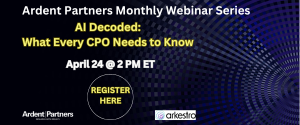The world of work is now in a state of perpetual change, consistently floating through the spectrum of evolution due to the progressions of technology, business thinking, and major economic developments. No longer do the traditional concepts of labor and work apply to the contemporary enterprise. The ramifications from the Gig Economy and now-decade-long sustained growth of the contingent workforce are not only giving rise to fresh talent engagement approaches, but also becoming intertwined with a technological revolution that is changing how businesses address work and all facets of talent engagement and talent management.
The Future of Work, a concept that confounds and exhilarates many of today’s business professionals, dictates that all aspects of business are now experiencing some measure of change. With this change, a full-scale revolution will occur in which all facets of the future organization will be impacted by innovation, evolution, and technological progressions. (See our “Future of Work Manifesto” Part I and Part II here for a deeper dive into the Future of Work.)
Those of you in procurement, at this point, must be wondering: “What does the Future of Work have to do with me?” It’s a fair question to ask, especially in the wave of so many pundits, economists, writers, and yes, industry analysts, touting this concept as the “next great thing” to shape modern business tactics and programs.
The answer to this grand question lies within the very complexities of the Future of Work model:
- New approaches at the executive level will shape the future of the workplace (such as embracing the Gig Economy, relying more and more on non-employee talent, and welcoming technological change).
- Innovative solutions will augment, alter, or replace existing systems within the average organization (i.e. artificial intelligence (AI), machine learning, robotics, etc.).
- Core enterprise software, like Vendor Management Systems (VMS), human capital management (HCM) platforms, spend management solutions, and ERP, will continue their path into an “ecosystem”. Here, integration will be paramount to foster deeper enterprise intelligence, more enhanced decision-making, and pushing the average organization into a state of agility.
- The workplace, itself, will be transformed, both physically (hot-desking, co-working) and mentally (cultural and demographic diversity).
- New and transformative skillsets, such as emotional intelligence, collaborative expertise, and deep communicative skills, will become sought-after as the Future of Work takes hold. And;
- Enterprises will place much, much more emphasis on the “talent experience,” thus moving beyond the legacy approaches to talent engagement and improving the overall allure of the company to attract all types of new talent.
Back to the question at hand: what does this have to do with the procurement function? What role does the Chief Procurement Officers (CPOs) play in the Future of Work? There are three major ways procurement is linked to the Future of Work:
- Procurement rides the continued wave of supply management innovation. From Blockchain to next-generation analytics (including machine learning and AI), the contemporary procurement executive has the power to push the function to new levels. And, within this rise results in procurement buying into the continued evolution of business agility and autonomy that is enabled by the innovation paramount to the Future of Work. If procurement is perceived as a value-add, progressive function, then it can easily contribute and shape the general future of the traditional organization. Procurement already sits in an influential position today…now, imagine its power if it can harness the innovation that is transforming the business world.
- The CPO’s talent and productivity issues are solved by Future of Work attributes. “People management” continues to be a problem for the average procurement team, as talent is always much-needed to spark the next great procurement function within the typical business, especially as more seasoned procurement execs drift off into the sunset of retirement. The evolution of talent engagement also applies to this group: online and digital staffing, social networks, etc. are talent sources that can help today’s procurement functions bring the group into new and exciting (and more agile) territory.
- Procurement’s deep supply chain knowledge, spend management data, and supplier information augment machine learning and intelligence-led initiatives. Artificial intelligence is perhaps the “hottest” concept within the Future of Work model, and rightfully so: data-driven organizations are the ones that will thrive in the months and years ahead. They are the ones that can effectively manage the many sources of enterprise knowledge (from ERP, accounts payable, VMS, HCM, general ledger, spend management, etc.) and plug that data into an AI/machine learning engine. Thus, they will not only have a deep understanding of their business today, they will also enable planning for tomorrow (and far beyond). Today’s globalized supply chain is a critical piece of any organization’s broader growth strategy; procurement sits in an interesting role in that they can effectively utilize the information that is contained within their everyday tools (e.g. spend analysis) to augment the next-generation power of machine learning.
CPOs and procurement pros – have I still got your attention? Subscribe to the Contingent Workforce Weekly podcast if you are interested in learning more about procurement’s role in the Future of Work, the evolution of the non-employee workforce, or best practices in contingent workforce management.
RELATED ARTICLES
Get the CPO Rising 2017: Tools of the Trade Report Today! NEW!
The Future of Work Manifesto, Part I
The Future of Work Manifesto, Part II
Tagged in: Chief Procurement Officer, Christopher Dwyer, Complex Categories, Contingent Workforce, CPO, Innovation, People, Process, Strategy, Technology








